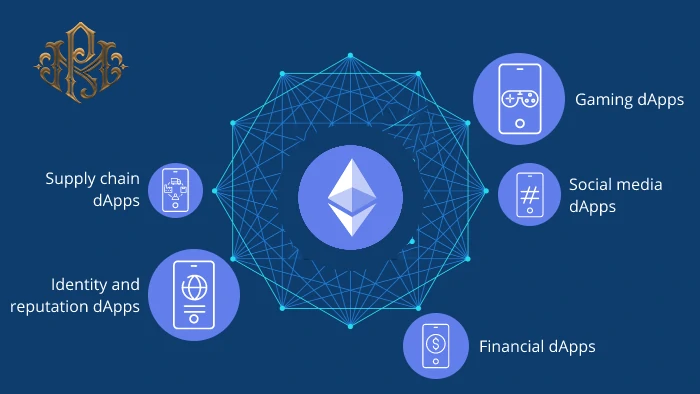Ethereum, the decentralized blockchain platform, has revolutionized the world of smart contracts and decentralized applications (DApps). As Ethereum has gained popularity, developers require robust tools and frameworks to streamline the development process and build efficient and secure applications. This essay explores the various development tools and frameworks available for Ethereum, highlighting their features, benefits, and use cases.
- Solidity: The Language of Ethereum Smart Contracts 1.1 Introduction to Solidity: Solidity is a high-level programming language specifically designed for writing smart contracts on the Ethereum platform.Solidity provides developers with a familiar syntax resembling JavaScript, making it relatively easy to learn for developers with prior programming experience.
Benefits of Solidity:
- Security: Solidity incorporates several security features, including automated checks for vulnerabilities such as reentrancy and integer overflow.
- Interoperability: Solidity allows for seamless integration with existing Ethereum libraries and frameworks, ensuring compatibility with the broader Ethereum ecosystem.
- Ethereum-specific Functionality: Solidity provides built-in functionalities like contract deployment, event handling, and interacting with Ethereum’s native cryptocurrency (Ether).
- Truffle: A Comprehensive Development Suite 2.1 Overview of Truffle: Truffle is a popular development suite that offers a comprehensive set of tools for building, testing, and deploying Ethereum-based applications. It simplifies the development process by providing a project structure, automated testing, and deployment scripts.
Features and Use Cases:
- Project Management: Truffle facilitates setting up and managing development projects, including directory structure, configuration files, and dependency management.
- Testing: Truffle includes a built-in testing framework that enables developers to write and execute test cases to ensure the correctness and reliability of smart contracts.
- Deployment: Truffle streamlines the deployment process by automating contract migration and generating deployment scripts for different networks.
- Debugging: Truffle integrates with popular Ethereum virtual machines, allowing developers to debug smart contracts using familiar debugging tools.
- Ganache: A Local Ethereum Blockchain 3.1 Introduction to Ganache: Ganache is a personal Ethereum blockchain that allows developers to create and test their applications in a local development environment. It provides an isolated blockchain network for rapid application prototyping and testing.

Ethereum Development
Benefits and Use Cases:
- Security and Isolation: Ganache enables developers to experiment and test their applications without risking any real Ether or interacting with the main Ethereum network.
- Fast and Deterministic Testing: Ganache provides instant block mining and transaction confirmation, enabling developers to iterate quickly during the development and testing phase.
- Integration Testing: Developers can simulate complex scenarios on Ganache by creating multiple accounts, generating transactions, and testing interactions between various smart contracts.
- Web3.js: The JavaScript Library for Ethereum Interaction 4.1 Overview of Web3.js: Web3.js is a JavaScript library that facilitates interaction with Ethereum networks. It abstracts the complexities of interacting with the Ethereum Virtual Machine (EVM) and exposes a user-friendly API for developers.
Features and Use Cases:
- Contract Deployment and Interactions: Web3.js simplifies the process of deploying smart contracts and provides methods for interacting with deployed contracts.
- Account Management: Developers can use Web3.js to manage Ethereum accounts, including account creation, signing transactions, and querying balances.
- Event Handling: Web3.js allows developers to listen for events emitted by smart contracts, providing a mechanism for real-time notifications and updates.
- Remix: An Online IDE for Solidity Development 5.1 Introduction to Remix: Remix is an online Integrated Development Environment (IDE) specifically designed for Solidity smart contract development. It provides a user-friendly interface for writing, compiling, and deploying smart contracts.
Features and Use Cases:
- Code Editing and Compilation: Remix offers a comprehensive code editor with syntax highlighting and auto-completion features. It compiles Solidity code and provides detailed error messages to aid developers in identifying and fixing issues.
- Contract Deployment and Transactions: Remix allows developers to deploy their contracts to various Ethereum networks and interact with deployed contracts by sending transactions.
- Debugging and Testing: Remix includes a built-in debugging tool that enables developers to step through their contract code and inspect variables at different stages of execution.
Conclusion: Ethereum’s ecosystem has evolved with various development tools and frameworks that empower developers to build powerful, scalable, and secure applications on the blockchain. Solidity serves as the go-to language for writing Ethereum smart contracts, while Truffle provides a comprehensive suite for project management, testing, and deployment. Ganache offers a local blockchain environment for rapid prototyping and testing, and Web3.js simplifies interaction with Ethereum networks. Additionally, Remix provides an intuitive online IDE for Solidity development. By leveraging these tools and frameworks, developers can unlock the full potential of Ethereum and




